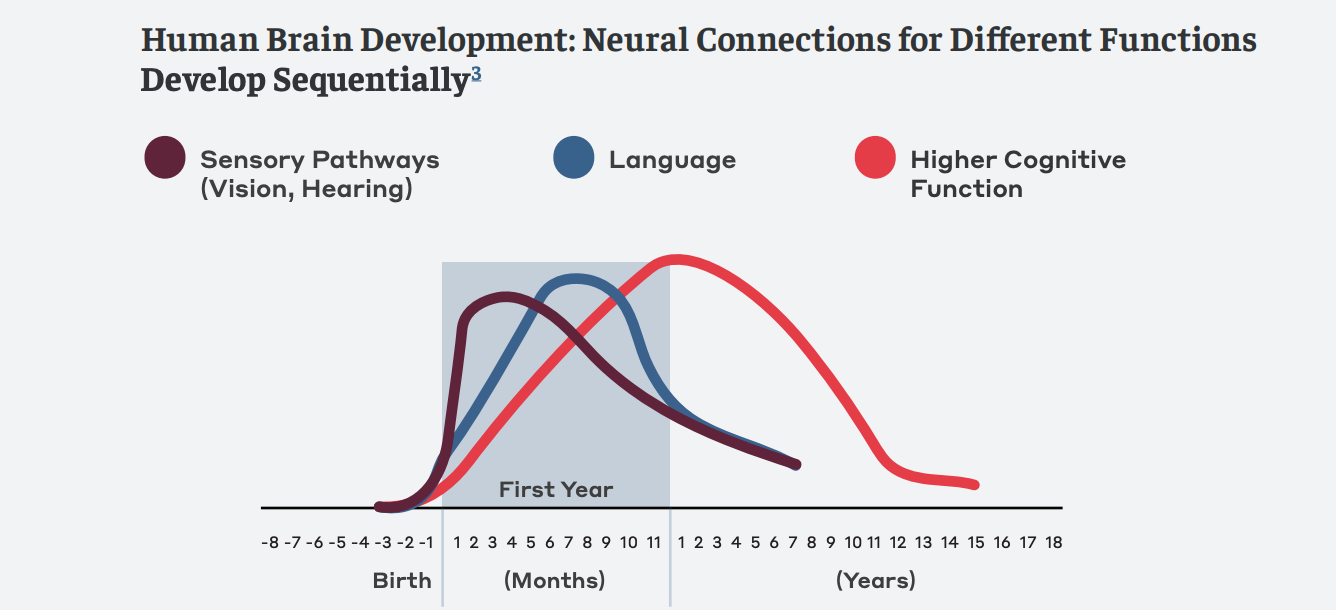Letter 7 Resource: Link to Article
Decades of neuroscience and behavioral research illustrate why a child’s first five years of life are the most critical periods in their brain development. Brains are built over time; the basic architecture begins at birth and grows the fastest over the first five years, before continuing into adulthood. One’s earliest experiences affect the quality of that architecture by establishing either a strong or fragile foundation for the learning and behavior that follows. Just as a weak foundation compromises the quality and strength of a house, adverse experiences early in life can impair brain architecture, with long-term and negative effects that last into adulthood.
90% of the brain develops before age 5.
BRAIN DEVELOPMENT
The brain is most flexible and adaptable to learning during the earliest years, and as the brain matures, it is less capable of reorganizing and adapting to new or unexpected challenges. The emotional and physical health, social skills, and cognitive and linguistic capacities that emerge in the early years are all important for success in school, the workplace, and in the larger community.
POSITIVE INTERACTIONS
Children’s brains require stable, caring, interactive relationships and positive experiences with adults. A child’s attachment to their parents is primary, but they can also benefit from close relationships with other nurturing caregivers. Decades of research have shown that mutually rewarding interactions are essential prerequisites for the development of healthy brain circuits and increasingly complex skills. Unfortunately, children who face greater stress and adversity, such as living in poverty or facing repeated abuse, are at far greater risk for delays in their cognitive, language, and emotional development. The architecture of these children’s brains does not form as expected, which can lead to disparities in learning and behavior.
Building A Strong Foundation
A strong foundation in the early years increases the probability of positive outcomes, and a weak foundation increases the odds of difficulties later in life. Therefore, creating the right conditions for early childhood development is likely to be more effective and less costly than addressing problems at a later age. The science of early brain development clearly indicates that federal, state, and local officials should support the implementation of programs that promote a balanced and developmentally appropriate approach to the “whole child.” When parents, communities, and professionals are able to positively influence children’s social and emotional needs, they will have maximum impact on the development of strong brains. Public policies that provide parents with viable choices about how to balance their work and parenting responsibilities after the birth of a baby or adoption of a child are critical to establishing strong foundations for the next generation.
The Takeaway
Children only get one chance at learning the fundamentals. Every child deserves an equal opportunity to a quality educational foundation that will prepare them to grow, learn, and succeed in education, society, and life.


